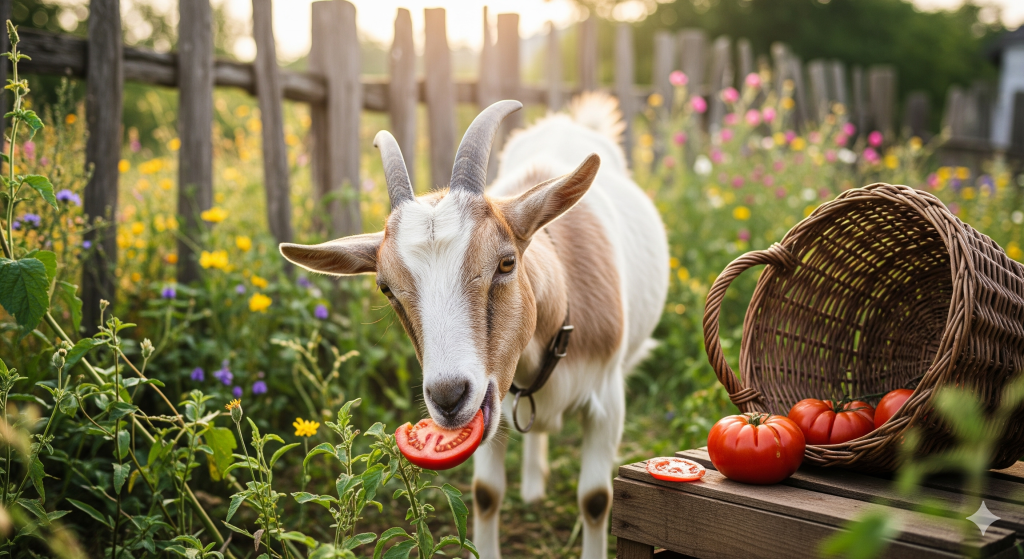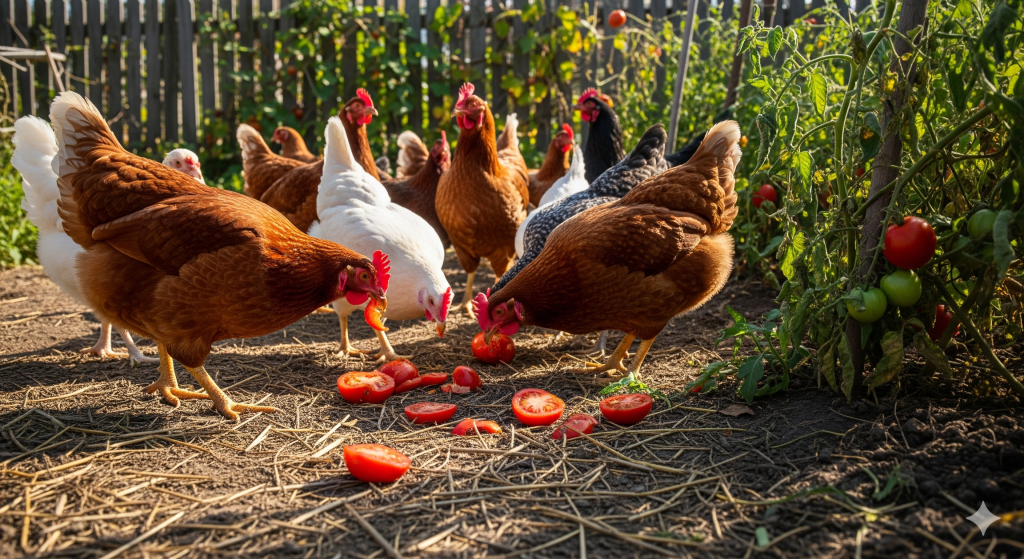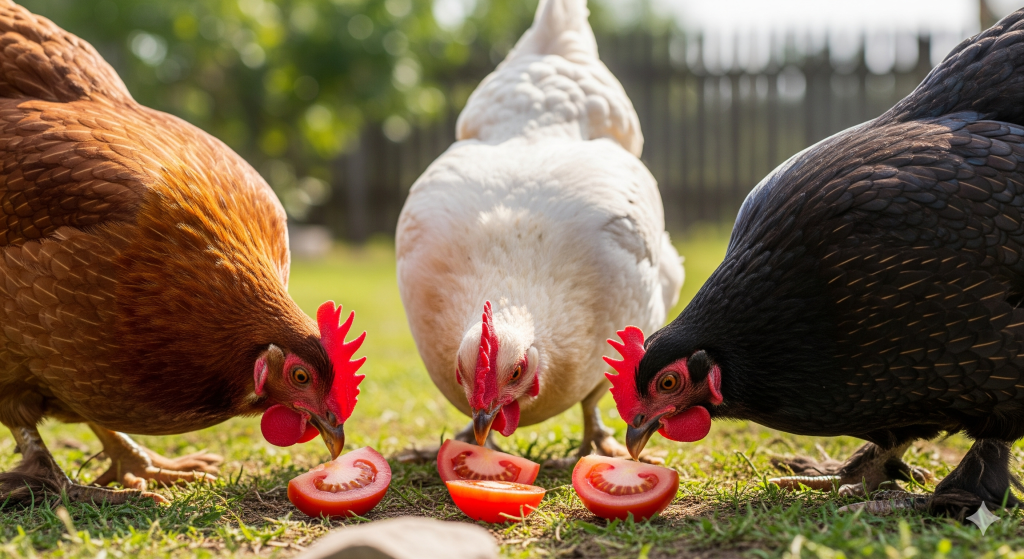Table of Contents
Goats are renowned for their adventurous palates and their ability to browse on a wide variety of plants. For many goat owners with a backyard garden, the question inevitably arises: “Can goats eat tomatoes from the garden?” While the sight of a goat happily munching on garden produce might seem natural, the answer regarding tomatoes is complex and requires careful consideration to ensure your goats’ safety.
The short answer is that ripe tomato fruit can be offered to goats in moderation, but the actual tomato plant is toxic and should never be consumed by them. This distinction is critical, as allowing goats free access to a garden with tomato plants poses a significant health risk.
Are Tomatoes Safe for Goats?
When we talk about the safety of tomatoes for goats, we must differentiate between the ripe fruit and the rest of the plant.
- Ripe Tomato Fruit (the red, edible part): Yes, ripe tomatoes (the red, orange, or yellow fruit) are generally considered safe for goats in small, infrequent amounts. They are a good source of vitamins like Vitamin C and K, and antioxidants. Goats usually enjoy the juicy texture and sweet taste. However, due to their acidity and sugar content, they should always be treated as an occasional treat, not a dietary staple. Overfeeding can lead to digestive upset.
- Tomato Plant (leaves, stems, vines, unripe fruit): Absolutely not. The entire tomato plant, including its leaves, stems, vines, and especially unripe green tomatoes, belongs to the nightshade family (Solanaceae). These parts contain toxic compounds called glycoalkaloids, primarily solanine and tomatine. When ingested by goats, these toxins can cause:
- Gastrointestinal distress (diarrhea, abdominal pain, bloating)
- Lethargy and weakness
- Loss of appetite
- Excessive salivation
- In severe cases, neurological symptoms and even death
Therefore, extreme caution must be exercised to prevent your goats from accessing any part of the tomato plant.
Want the Ultimate Guide to Off-Grid Living?

If you love the self-sufficient lifestyle, this is the only guide you’ll ever need. Learn how to generate your own power, secure your water supply, and become truly independent. No fluff, just actionable plans.
➡️ Check out The Self-Sufficient Backyard and start your journey today!
Can Goats Eat Tomato Fruit?
Yes, as mentioned, ripe tomato fruit can be offered as a treat. The key is “ripe” and “treat.”
- Ripeness is Key: Only offer fully ripe tomatoes. Unripe green tomatoes still contain high levels of the toxic alkaloids found in the plant.
- Moderation: Due to their sugar content and acidity, tomatoes should only be given as an occasional treat, perhaps a few times a week at most, and in small quantities. A few slices for an adult goat is sufficient.
- Preparation: Always wash tomatoes thoroughly to remove any dirt, pesticides, or residues. Cut them into manageable pieces to prevent choking, especially for smaller goats.
Can Goats Eat Tomato Plants?
No, goats cannot eat tomato plants. This bears repeating due to the severe health risks involved. Every part of the tomato plant—the stems, vines, and leaves—is toxic to goats. They contain solanine and tomatine, which are harmful glycoalkaloids.
Goats are curious and will often nibble on anything within reach. If you have a garden with tomato plants, it is imperative to fence it off securely or ensure your goats are never allowed in that area. Even dried tomato plant material can retain toxicity, so be mindful if you are composting or disposing of garden waste.
Can Goats Eat Tomato Seeds?
Yes, the seeds within a ripe tomato are safe for goats to consume along with the fruit. There is no need to remove them. The seeds are small and will pass through their digestive system without issue. The concern regarding tomato toxicity lies with the plant material and unripe fruit, not the seeds of a ripe tomato.
Can Goats Eat Tomato Leaves?
No, goats absolutely cannot eat tomato leaves. Tomato leaves are particularly concentrated with the toxic glycoalkaloids (solanine and tomatine) that are harmful to goats. Ingesting even a small amount of leaves can lead to poisoning symptoms. Always ensure your goats cannot access tomato foliage, whether it’s on a living plant or discarded trimmings.
Conclusion
The allure of fresh garden produce can be strong, but when it comes to goats and tomatoes, caution is paramount. While ripe tomato fruit can be a safe and enjoyable treat for your goats in strict moderation, the rest of the tomato plant—including the leaves, stems, vines, and unripe green tomatoes—is toxic due to harmful glycoalkaloids.
To ensure the safety and well-being of your herd, always:
- Only offer fully ripe, red tomatoes.
- Provide them as an occasional treat, not a regular food source.
- Never allow your goats access to the tomato plant itself.
- Dispose of all tomato plant trimmings securely where goats cannot reach them.
By understanding these critical distinctions, you can safely manage your garden and your goats, keeping them healthy and happy while avoiding dangerous plant exposures.



